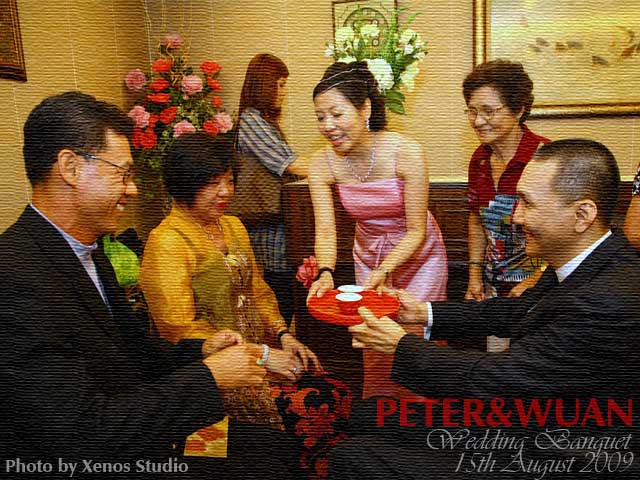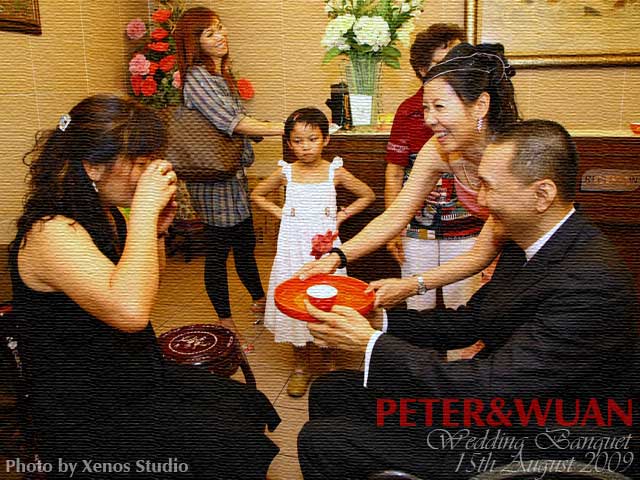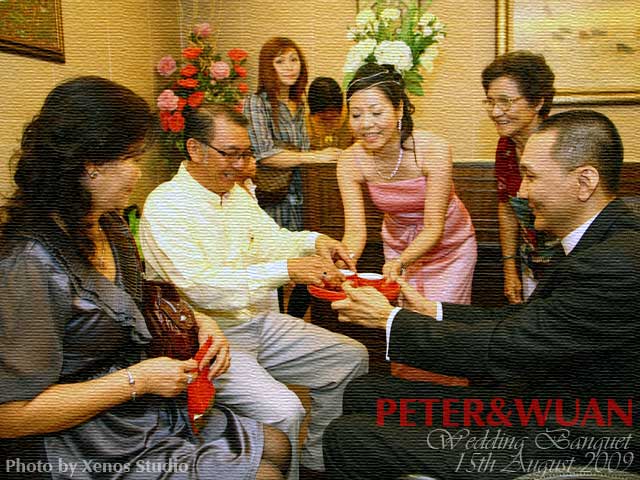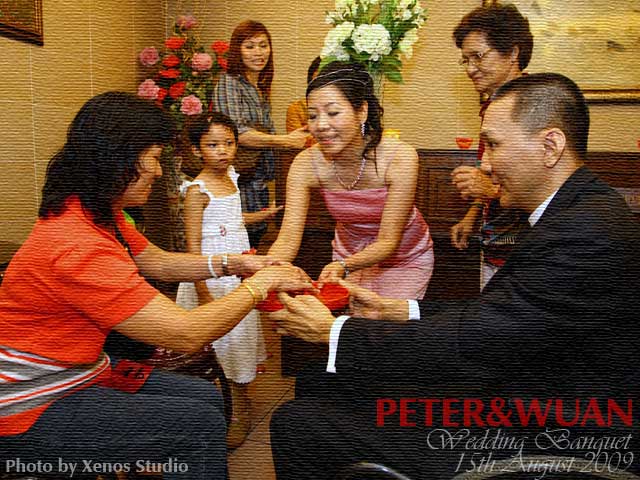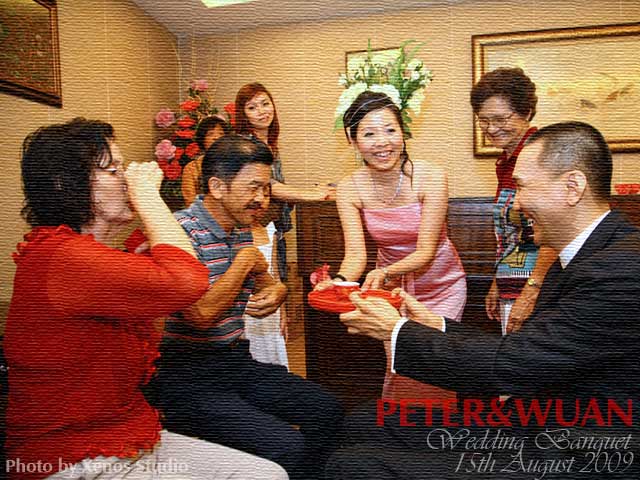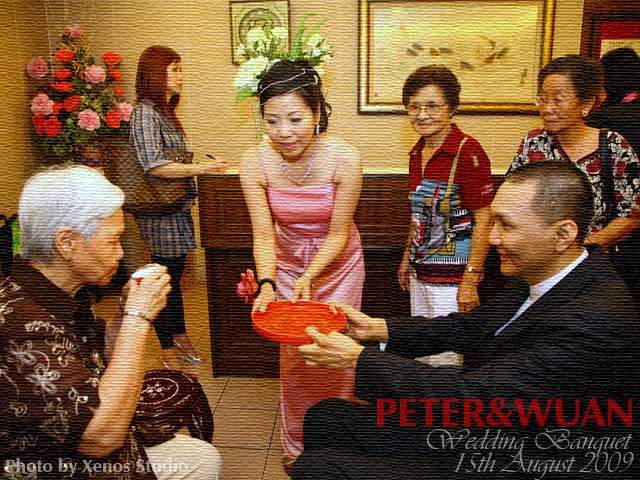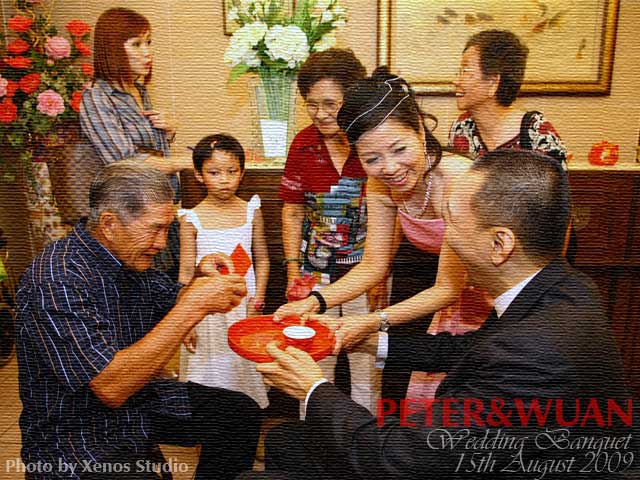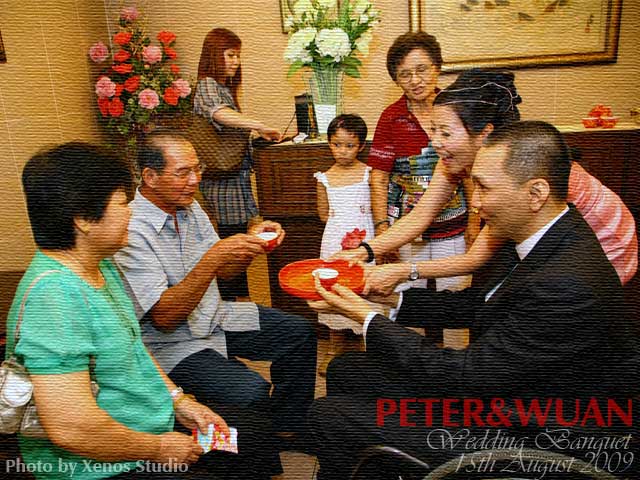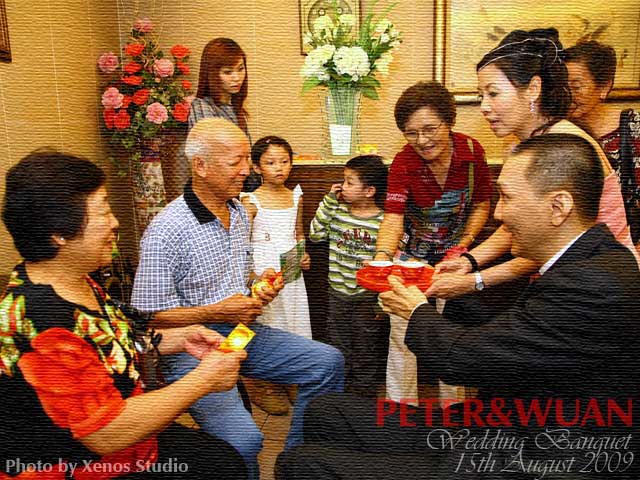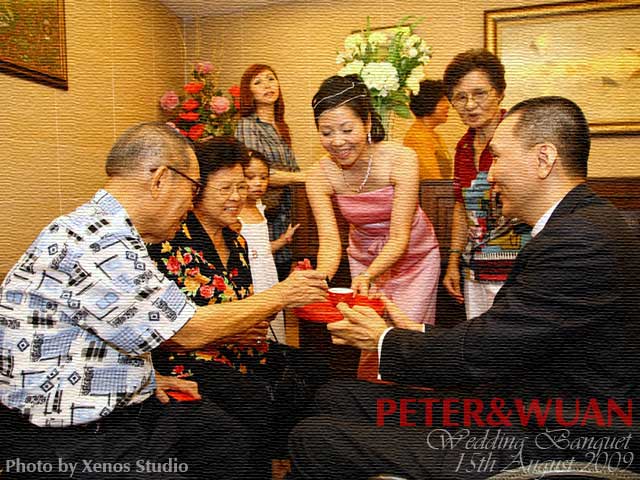It is true when Harcharan said that I have many cousins. Those at the wedding banquet were only a fraction of them. I did not invite the majority of my paternal first cousins as they reside out of the island and I did not want to put them through the hassle. Besides, the restaurant would not be able to accomodate all if they “gave face” and attended. A restaurant with twice the seating capacity of Starview Restaurant would barely suffice.
Apart from my paternal and maternal first cousins, Wuan and I also served tea to one of my second cousins and two god-daughters of my maternal uncle and aunt respectively. The god-daughters are considered cousins with no less seniority in the family. In putting up these wedding tea ceremony entries, I got to know many relatives again and understand how we are related. In many ways, I am glad we had the tea ceremony. Someone mentioned that we are only able to gather many relatives at the same place and time only during weddings and funerals. Sad but true. I am glad we got together for a wedding this time.
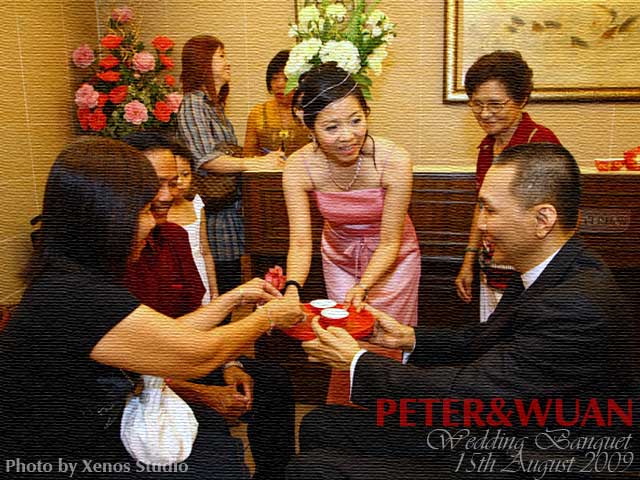
Maternal cousin and wife.
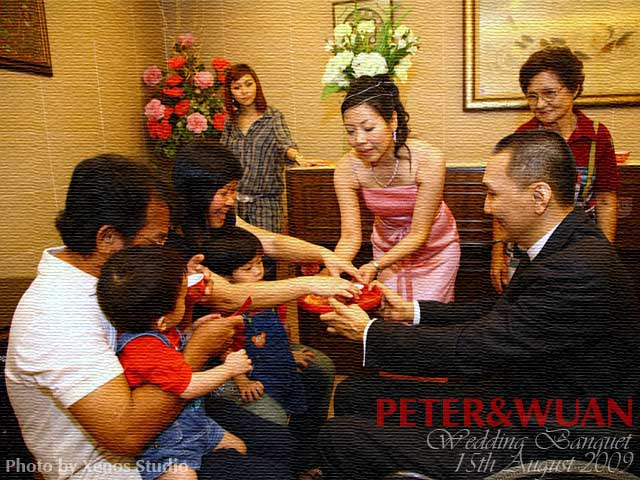
Maternal cousin and wife.
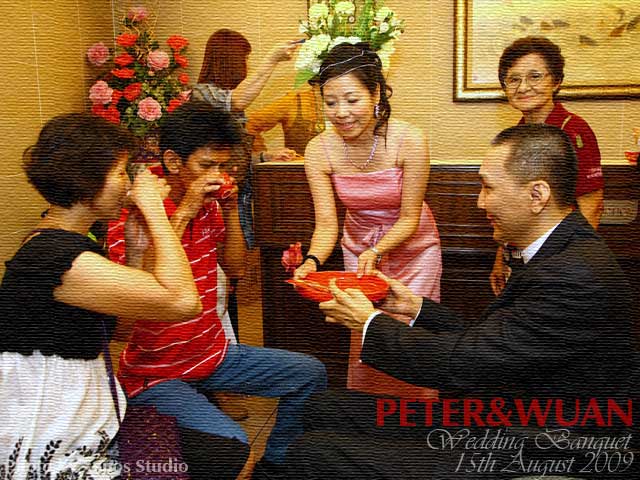
Maternal cousin and wife.
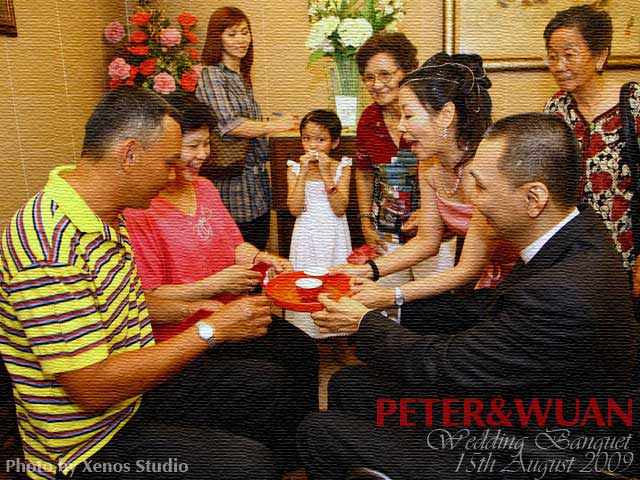
Maternal second cousin and wife.
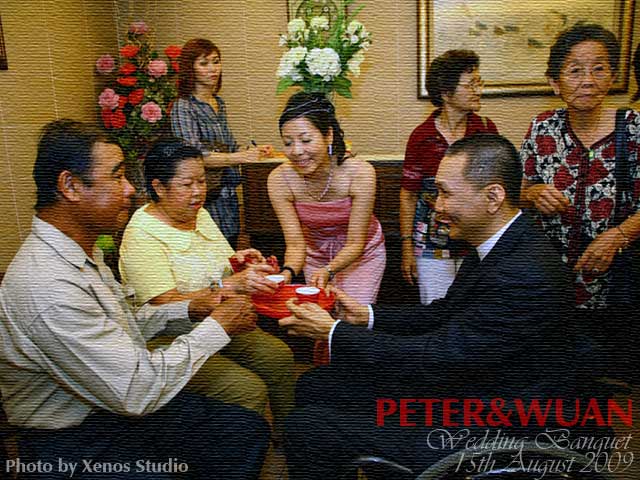
2nd maternal aunt’s god-daughter and husband.
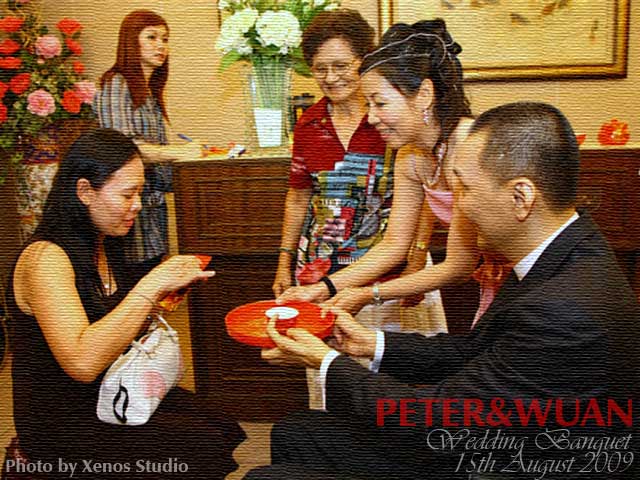
Elder maternal uncle’s god-daughter.

